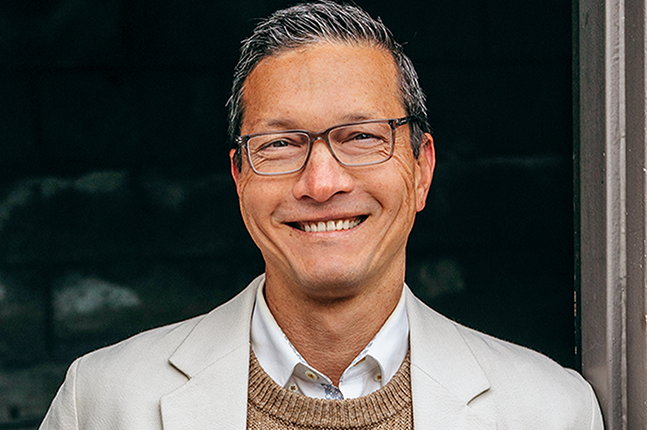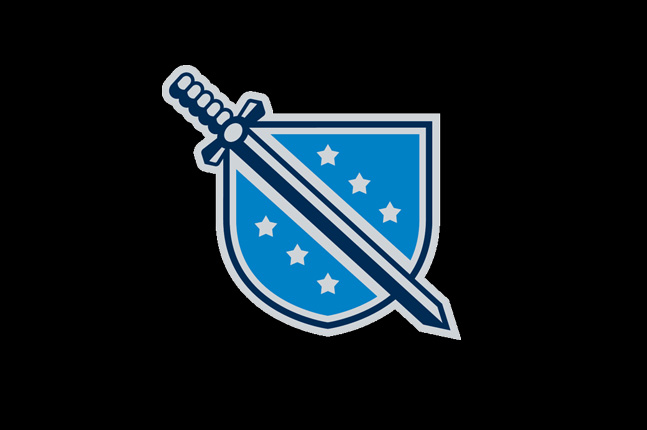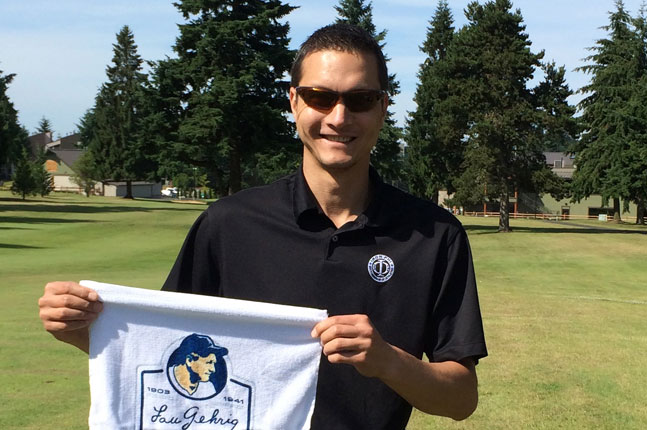By Scott Mietchen, General Council Treasurer
Several weeks ago I was meeting with a group of parents of newly initiated Phi Delts. Only one of the parents had come from a fraternity or sorority background. The purpose of the meeting was to ease their parental concerns about what joining a fraternity would mean for their sons, and to educate them about both the short– and long-term benefits of joining the international brotherhood that makes up Phi Delta Theta.
As I was preparing to talk with these parents I realized how easy and common it is for most of us in Phi Delta Theta to only view the Fraternity through the lens of our own chapter and our own undergraduate experience. While we learned some facts and figures about the broader international Fraternity through the process of our own individual recruitment (rush) and pledge education periods, for many Phis, the larger Fraternity oftentimes remains rather amorphous.
When the six Founders formed the Fraternity and wrote The Bond of Phi Delta Theta nearly 162 years ago, it is clear that they envisioned, from the very beginning, an organization that would extend well beyond the boundaries of Miami University. They envisioned an organization of leaders, scholars and gentlemen on every campus where Phi Delta Theta was represented. It was expected that, following their time as undergraduates, these men would go on to lead lives of character and service for themselves, their families and their communities.
As I was thinking about our larger brotherhood, I was also reminded of a comment made to me months earlier by Steve Good (Iowa State ’04), the Director of Education and Technology at General Headquarters. Last year, in a short note to me, Steve used the term “Phi Delt Nation,” a phrase that has stuck with me ever since.
With apologies to those many sports teams and organizations who attach the word “Nation” as an appendage to highlight something such as a team’s fan base, I propose a slightly different definition.
Phi Delt Nation, noun, the compilation of the individual and collective actions and characteristics of members of Phi Delta Theta, whether they be undergraduates or alumni, living or deceased, regardless of chapter, national origin, or geographic location.
So, as a Phi, following are six items that make me proud of our Phi Delt Nation.
1. In 2009 Phi Delt chapters were, on average, 45% larger than the average NIC fraternity chapter in North America: This compares to being 21% larger in 2000 and 11% larger in 1993. Phi Delta Theta remains relevant on today’s college campus and continues to be a leader in the Greek movement.
2. Phi Delts are community leaders: Phi Delts have held nearly every top office in the United States and Canada including President, Vice President, Speaker of the House, Senator, Representative, Member of Parliament, Cabinet Secretary, Justice and Chief Justice of the Supreme Court, Governor and Mayor. Our undergraduate brothers today continue this long tradition of leadership. The numbers and names of every Phi or chapter today who is student body president, IFC president, Fraternity Man of the Year, Outstanding Graduate of the Year, Outstanding Fraternity of the Year or Homecoming, Greek Week or Intramural champion is too long to list here. But the Founders’ vision of inviting the best men on campus to become Phis continues 162 years later across North America.
3. More Phi Delts have received the Congressional Medal of Honor than of any other college fraternity: I was reminded once again of the outstanding service and sacrifices Phis have made in the defense of freedom last week when I learned that one of my own chapter brothers, Lt. Colonel (Ret.) Thomas W. McKevitt (Utah ’85), has just been named the Chief Operations Officer at the United States Military Academy at West Point. The first Phi who made the ultimate sacrifice did so nearly 150 years ago in the early days of the Civil War. Since that time, Phis have served with distinction in every military service branch and every war of the United States and Canada and been recognized with every significant honor presented by these countries, including the most prestigious of all, the Congressional Medal of Honor. This service to our countries continues today from brothers such as General Council President, Lt. Colonel (Ret.) Mark H. Ochsenbein (Eastern Kentucky ’77) and in many of our chapters where Phis like John Garcia (Johns Hopkins ‘11) are recognized as the Outstanding ROTC Student Leader on their campus and when two Phis, fresh from tours of duty in Iraq, return to serve as president of their respective chapters, Cullen Millsap (Alabama ’10) at Alabama Alpha and Philip Schermer (Auburn ‘10) at Alabama Beta.
4. Phi Delts achieve academic excellence: Our chapters continue to focus on supporting the academic success of brothers and their individual commitment to sound learning, one of Phi Delta Theta’s three cardinal principles. Nearly 25% of our chapters were ranked #1 in grades on their campus, with nearly 40% achieving above a 3.0 cumulative GPA for the chapter and well over 50% of our chapters ranked above the campus all-men’s average. During a recent meeting with a chapter I was gratified to see, through a show of hands, that nearly 75% of the chapter members had plans to attend either graduate or professional school after completing their undergraduate studies. Phi Delts remain committed to a lifetime of learning.
5. Phi Delts are committed to serving those in need: In 2009, 84 of our 160 chapters received Community Service Citations recognizing exemplary community service efforts. Our chapters have run, walked, biked, lifted, danced, raced turtles, dodged balls, climbed, golfed, collected food and clothes, teeter tottered, trick or treated, and sung for needs as broad as ALS, Haiti relief, Hurricane relief, preventing violence against women, cystic fibrosis, cancer, autism, and programs for at-risk youth.
6. Phi Delts excel on the playing field as well as in the performance hall: Continuing in the footsteps of Phis such as “Iron Man” baseball great Lou Gehrig (Columbia ‘25) and Legendary Cincinnati Pops Conductor “Prince of Pops” Erich Kunzel (Dartmouth ‘57), our members are committed to being the best. Whether it is George Stevens (Centre ’11) being awarded the SCAC “Character & Community” Student-Athlete Award; two University of Miami Phis, Eric Spiegel ‘11 and Stephen Sorace ‘12, competing in the 2010 Varsity Vocals International Championship of Collegiate A Cappella; country music star Chris Cagle (Northwest Missouri ‘90) topping the country music charts; Phi swimmer Tim Stumbaugh (MIT ‘12) being named NEWMAC Rookie of the Year; or Frank Lapple (California State – Northridge ’57) being elected into the National Senior Softball Hall of Fame; Phi Delts continue to excel in their respective venues.
So while we will always be loyal to, and grateful for, our own chapter experience, let us take pride in and not forget that we are each, in our own sphere of action and influence, affecting and enhancing the reputation and future of our collective Phi Delt Nation. I’m Proud to be a Phi!
Scott Mietchen is a 1984 graduate of the University of Utah where he earned both his B.S. and MPA. He has served the Fraternity as a chapter consultant, chapter adviser, house corporation president, province president, delegate to the NIC and member of the General Council from 1994-2000 and 2004-Present. He currently serves as General Council Treasurer. Professionally Scott is President of Fund Raising Counsel, Inc.(FRCI), the oldest fundraising consulting firm in the Intermountain West. Prior to joining FRCI, he served as Vice President for University Advancement at Utah State University. Scott, his wife Lisa, and their children, Abby (16) and Alex (13) live in Salt Lake City.





